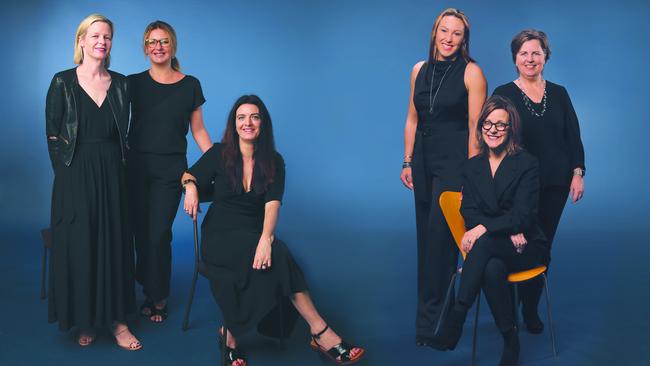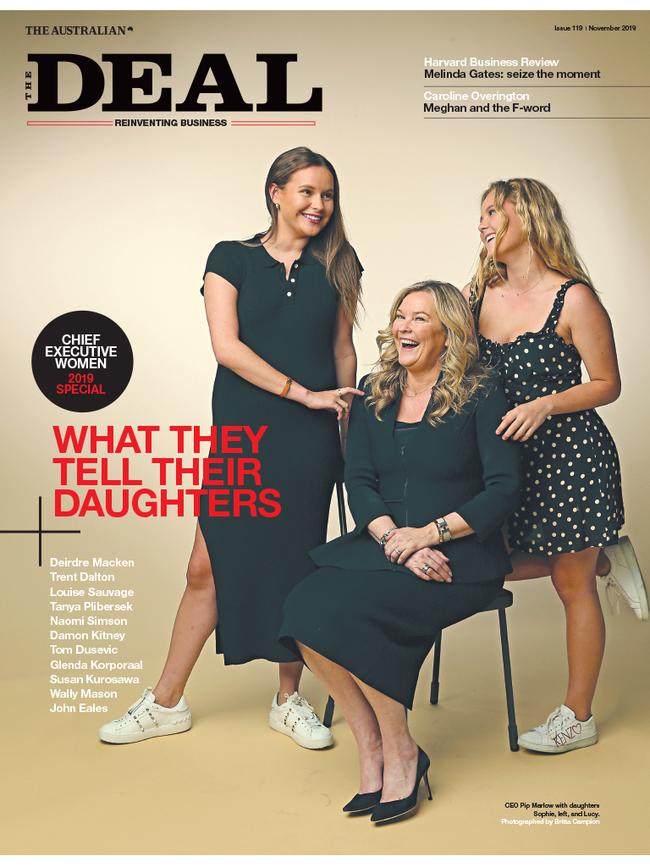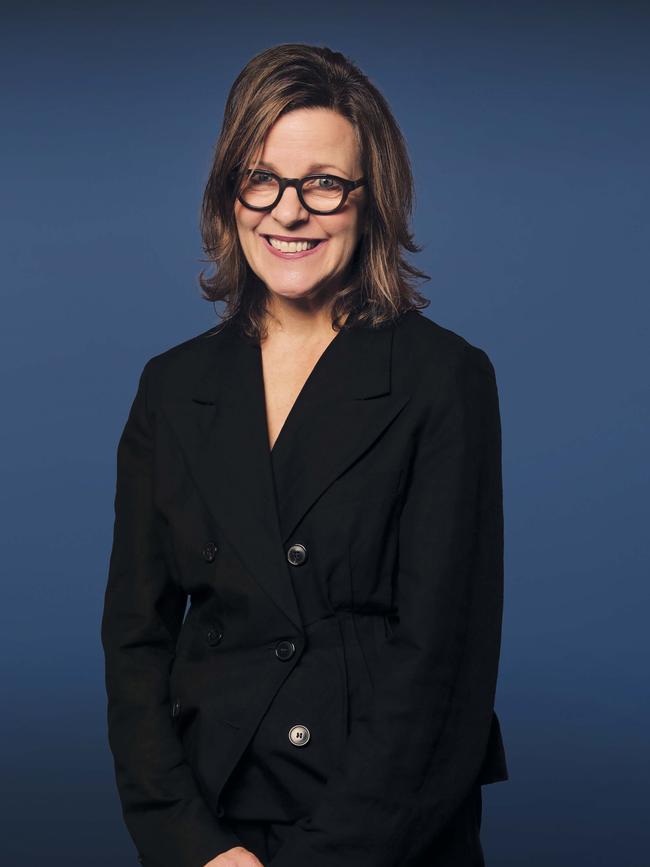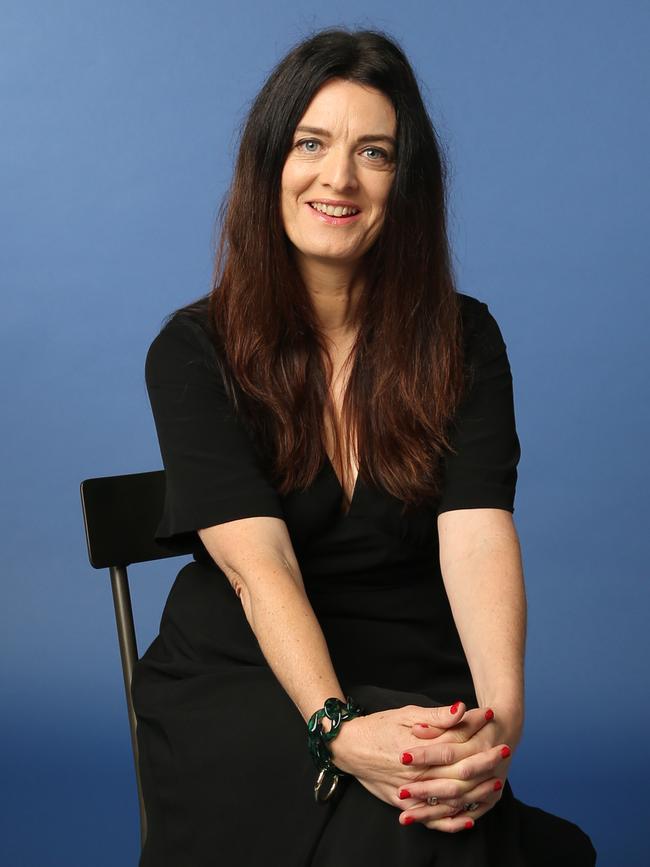Women lead the way at Publicis
Publicis Groupe has no problem with female executives. But the global communications giant is no ordinary employer.

It was 20 years ago but Melinda Geertz remembers the moment like it was yesterday. It was a typically chilly, windy afternoon in Chicago. But inside the worldwide headquarters of advertising agency Leo Burnett, where the firm was founded in 1935, Geertz’s blood was boiling.
“I heard someone say, ‘Oh Melinda would be an awesome CEO but she can’t do it because she’s got kids’,” she recalls of the event that changed her life.
Geertz had joined Leo Burnett as a graduate from North-western University and quickly risen through the ranks, while balancing the demands of being a mother. For years she’d put up with the odd sexist comment but enough was enough.
“It was probably the kick that I needed to get me a little bit mad and genuinely feeling, is this how it rolls? I genuinely believed if you were talented, worked hard and were respected, things just happened naturally. But I wasn’t putting my hand up. I wasn’t trying to accelerate or lean in,” she says.
I heard someone say, ‘Oh Melinda would be an awesome CEO but she can’t do it because she’s got kids’
In 2002 she moved to Australia with the agency to be CEO of Leo Burnett Melbourne which, under her leadership for 15 years, became one of the most successful and awarded in the country.
And Geertz didn’t play by the rules. She made her own.
For the first eight years of her tenure she worked four days a week. “When I took the Melbourne MD role my boss was in a regional role,” she says. “I told him that work is only part of life and if you think I am going to be here 16 hours a day, I won’t do this job. I told him I had to respect all of me. And he was absolutely awesome. He said: ‘I want you to do this role, I will take you however I can take you.’ He recognised the world had moved on and that it is talent that wins out.”
Two years ago Geertz took over as CEO of Leo Burnett Australia, part of the giant French marketing services company Publicis Groupe, the third-largest communications group in the world.

As one of the few female national advertising agency CEOs, she’s been viewed as a champion of diversity, work/life balance and creative culture. But she isn’t alone: 63 per cent, or 10 of the 16 Publicis Groupe CEOs and MDs in Australia, are female. The industry average is 27.9 per cent. Other women at the top of Publicis Australia include Sarah Adam-Gedge (MD, Publicis Sapien), Pauly Grant (chief talent officer, Publicis Group), Nickie Scriven (CEO, Zenith), Vanessa Liell (group CEO, Herd MSL), Suzie Baker (MD, Prodigious) and Julie Dormand (CEO, MercerBell).
Among the firm’s CEOs and MDs, the gender pay gap is now zero versus the national average of 14 per cent across all industries.
But Publicis remains the exception to the rule in the sector. While there is an increasing number of women working across the advertising industry, they are still thin on the ground in the management ranks. And in the broader advertising services sector, the pay gap across all full-time employees remains at 21.4 per cent, according to the Workplace Gender Equality Agency.
This is despite the fact that according to a survey conducted earlier this year by Forbes magazine, women can influence 80 per cent of consumer spending and 60 per cent of social media sharing. The study also found that 94 per cent of women between the ages of 15 and 35 spend more than an hour a day shopping online and 70 per cent of travel consumers are women.
While at Publicis 60 per cent of the creative department is female, women continue to be under-represented in the creative departments of advertising agencies across the world, especially at senior levels. Only 15 per cent of creative directors worldwide are female, which helps explain the gender pay gap.
“Many women in that middle part of their career have bailed out a few years ago so there is that void in the senior creative level,’’ says Grant, who runs Publicis Groupe’s HR, people development and corporate communications in Australia and New Zealand. “Also, it is quite a specific skill.”
Geertz says women can get psyched out of the advertising industry while trying to balance the demands of work and family. “There is an unrelenting pace to it,” she says. “It is a service business that is complicated and has high expectations. This fundamentally scares women off.’’
‘Having an all-male creative department doesn’t feel natural to me’
Some in the industry suggest women write advertising material that is funnier, smarter and less sexist than men do. But Geertz says good creativity isn’t about gender — it is about diversity.
“I don’t subscribe to the idea that only women can write material about women’s products,” she says. “How great is a community with diversity versus a community without it? It is about human beings and collaboration. The reality of life. Having an all-male creative department doesn’t feel natural to me.’’

Yet more broadly, she says, a woman’s voice is not an asset in the race for equality. “Literally, the tone of a man’s voice I notice in meetings can really get you,’’ she says. “You hear them more. There is a bit of a boom to it. I hear women speak but I hear a man say it louder, and with more force and with more confidence.”
Adam-Gedge, MD of digital transformation business Publicis Sapient — the fastest growing part of Publicis — says she remains constantly optimistic about women coming through in more senior roles in the advertising industry.
“Something might happen, say a situation that didn’t go so well, and sometimes I catch myself going, did a woman really do that? Only because I want to see them succeed,’’ she says.
She stresses it isn’t about affirmative action, quotas or biases against men. “I am simply hopeful we can swell the ranks of women so we can get this equality that we seek, and we get a better representation of what the world is like,” she says. “It is just that ambition to have equality.’’
Now working in the digital technology space, Adam-Gedge says the skills that are needed are multi-disciplinary. It is about hiring people with creative and strategic skills.
“The ability to have people coming from different walks of life with different skills is allowing a better ability to have more balance in the workplace around gender,’’ she says. “When there is an opportunity to bring senior people in, it is very important to get the gender balance right at that senior level.”
Adam-Gedge’s passion for diversity stems from an incident in her former life working for a big multinational corporation. On one occasion when she was in her 30s she remembers preparing to address a town hall meeting for her staff in Canberra. “One of the topics was around diversity,” she says. “There was another woman who was with me who was a real champion of gender diversity. We were just chatting about how we would run that session and I said to her just casually in the discussion: ‘I am really not a bra burner!’ And she immediately turned to me and replied: ‘Why not? You really do need to lean into this. You need to come with me.’ And I thought, she is right, good on you.”
Before her role at Publicis, Grant worked for ZenithOptimedia for seven years as head of people and culture in Australia and New Zealand.

For all the modern challenges facing women in the profession, she says it is remarkable how things have changed. “Back when I first came in, it was a regular thing for a woman to go away on maternity leave and not return,” she says. “Or when they returned there weren’t many options for part-time work. Unless you had a manager who was trusting and flexible themselves, it didn’t happen. Now we have flexibility and the option towards that.’’
Publicis Groupe has started a global program called Viva Women which each local market creates and adapts to its needs. The program was launched in July last year and includes compulsory harassment and bullying training and ongoing improvements to parental leave each year.
“In Viva Women we started all-female panels,” Grant says. “Our parental leave policy is also proudly for dads; we are changing the conversation with dads. If I look at the amount of dads who take advantage of flexible or part-time work policies, it is nowhere near enough.
“If I look across the agencies, there is no way that in the past certain companies would promote women when they were pregnant. We promoted a woman in Starcom when she was five months pregnant, and she is taking a year’s maternity leave. Things like that are a cultural change.”
As part of Viva Women, Grant is conducting executive-level gender pay gap analysis, which is providing greater structure and transparency to the salary review process.
“A lot of the process has improved,’’ Grant says. “Previously there wasn’t much process. It was more a matter of who spoke the loudest. Now we have an ability to look across the whole group as to who is getting a raise and who isn’t but should be.”
But she says it is also up to women to have more confidence to ask for what they want and negotiate. “We can do things around process but I still think there is a lot we need to do in the training and development of women to have the skills and that confidence to negotiate,” she says. “It is the value they perceive themselves to have. They are quite humble but I do see a change.”
Geertz says her passion for the Viva Women program draws inspiration from the global #MeToo movement, which has opened up a dialogue in the industry that wasn’t there before.
“You can talk about things directly now,” she says. “Most women have just managed through things, whether it is a sexist comment or something inappropriate. Now women are alert to it. And men are alert to it. It gives you the voice to stand up, to correct when someone does do something that isn’t right — not the hardcore sexual harassment type of thing, just daily behaviours.
“Where there is inappropriate humour, it is not evil from the men, it is just socialised behaviours. Generally with me it is good humoured in response. That is probably my weapon. I can see you can affect change by not being confrontational, just by helping people see things.”
As a trailblazer in the sector, Geertz says she has seen boys’ clubs and bias in overt and covert operation over many years. In many instances where she has felt it was appropriate, she has called it out. As she did that afternoon in Chicago two decades ago where she was shocked into action.
She now hopes that other women don’t have to wait for such a prompt to stand up for what they believe in.
“I had my moments of truth that were confronting but I don’t want other women to have to wait for those to happen in their lives,’’ she says. “I encourage them to back themselves, believe in themselves and know how good they are.”


To join the conversation, please log in. Don't have an account? Register
Join the conversation, you are commenting as Logout